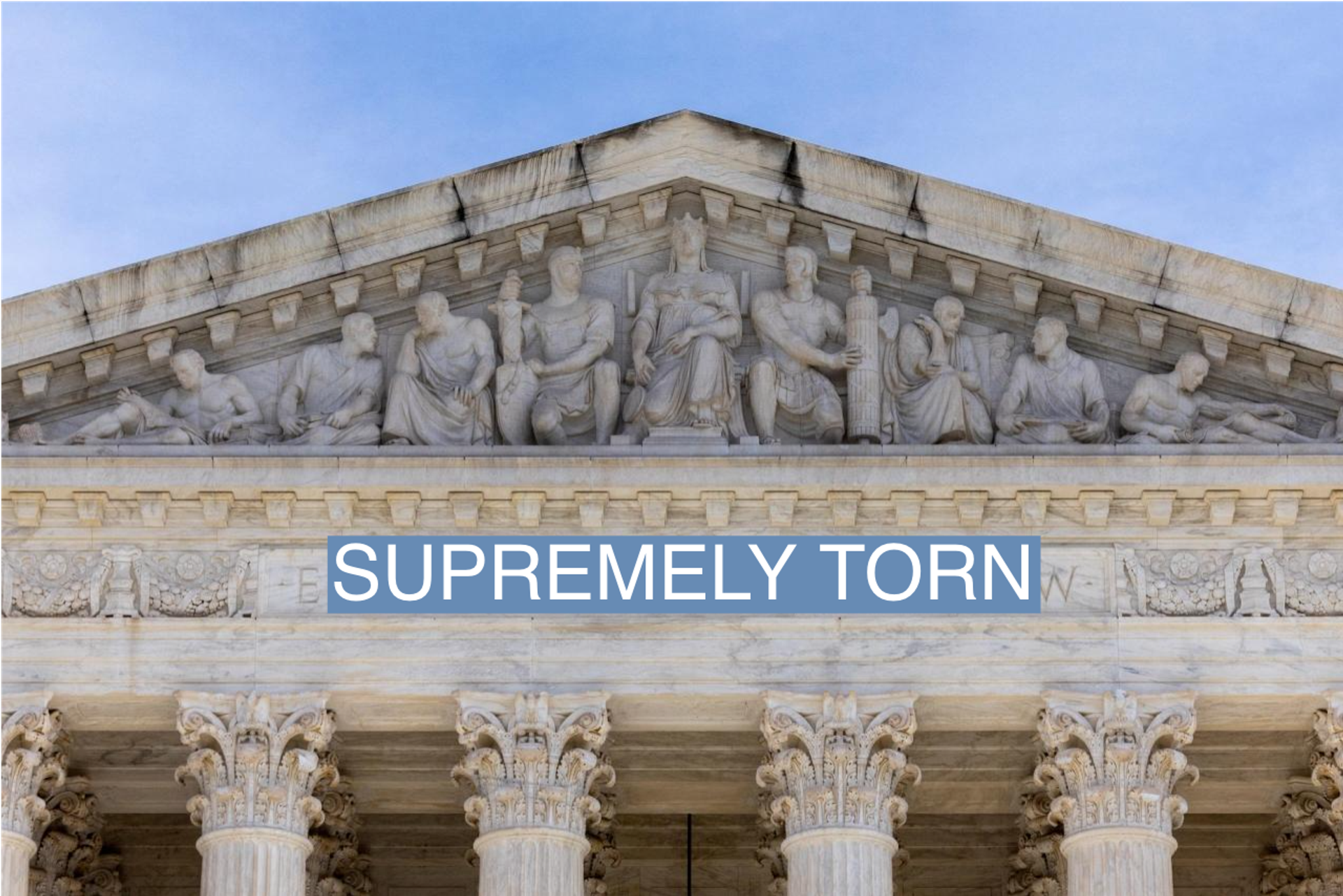The News
The U.S. Supreme Court appeared torn Monday during a hearing over a pair of landmark cases that could define how social media companies moderate users’ posts and upend the way that discourse is allowed to flow online.
After Donald Trump was barred from Twitter and Facebook over his role in the Jan. 6, 2021, U.S. Capitol riot, Republican leaders in Texas and Florida, concerned that social media platforms were censoring conservative political views, introduced laws limiting their ability to remove content and accounts, including inflammatory or extremist viewpoints.
It appeared likely Monday that the Supreme Court would send the cases back to lower courts for the time being, numerous court-watchers said. Justices seemed reluctant to completely strike down the laws in question, but also expressed concerns about how the laws would interact with companies’ efforts to block hate speech and misinformation. Justice Amy Coney Barrett noted “a bunch of land mines” that could have unforeseen ripple effects, while Justice Neil Gorsuch said “separating the wheat from the chaff here is pretty difficult.”
Tech giants say the Texas and Florida laws — which are currently blocked — give the government too much control over online speech, violating the First Amendment, and could limit their ability to remove misinformation and other harmful content.
But Republicans who have backed the laws, including Florida Gov. Ron DeSantis and Texas Gov. Greg Abbott, say they’re necessary to preserve free discourse and prevent discrimination against conservative viewpoints — and that content moderation is itself a form of censorship. Decisions on the cases are expected in June.
SIGNALS
Decision could be less climactic than expected
Court-watchers had described the hearing as the most high-stakes First Amendment case in years — but the apparent reluctance of judges to change the status quo led to the downplaying of expectations.
“There are hints across the ideological spectrum that there may not be a landmark First Amendment ruling this term after all,” The New York Times’ Charlie Savage reported. “After nearly four hours of argument, it seemed clear that the laws would remain blocked and the cases most likely returned to the lower courts,” The Washington Post’s Ann Marimow wrote.
That’s in part because justices from both sides of the aisle raised the question of whether platforms such as Uber or Etsy — which provide services rather than an overt outlet for expression — would be regulated under such laws. Multiple justices raised the possibility of remanding the case to the lower courts to answer that dilemma, which would take significant air out of the decision.
Tech giants and some conservatives alike oppose the laws — for different reasons
“Republicans are rightly frustrated by censorship that often tilts against conservatives, including us,” The Wall Street Journal’s right-leaning editorial board wrote. “But the solution to business censorship of conservatives isn’t government censorship of business.”
On the other hand, tech industry group NetChoice, which represents tech giants including Google and Meta and is party to both of the cases at hand, argued that allowing the state laws to go into effect would unleash “a tidal wave of offensive content and hate speech crashing onto users, creators, and advertisers.” That’s because these platforms don’t have the manpower to offer individualized explanations to users whenever their content is taken down, something the Florida law would require.
Upholding laws could chill political speech, lead to censorship
By giving government license to force social media firms to allow certain views, these laws give the state greater influence over public and political discourse, to potentially “chilling” effect, the Reporters Committee for Freedom of the Press argued in a brief. Another First Amendment advocacy group said the internet and social media are no different from the printing press, which the U.S. embraced as an “essential component of its political system,” and whose editorial decisions are crucially free from government control.
The New York Times noted that the laws could have the dueling effects of allowing extremist content — or go the other way and see platforms sidestep the issue by banning “discussion of anything remotely political by barring posts about many contentious issues.”
And with the U.S. presidential election approaching, both parties have planted a flag on either side of the case that seem to run counter to conventional partisan ideology on the role of government in private enterprise: Trump filed a brief in support of the laws, while the Biden Administration uncharacteristically sided with Silicon Valley to oppose them.

